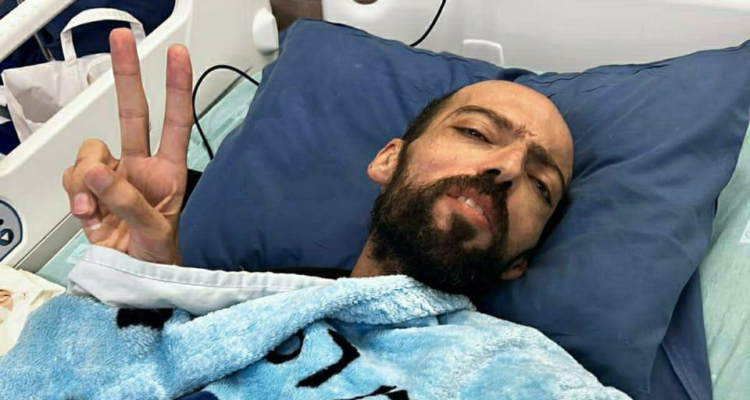PA officials encourage Palestinian public to support the hunger strikers, call on incarcerated terrorists to “confront the jailers with their empty stomachs.”
By Lauren Marcus, World Israel News
After hours after Islamic Jihad operative Khalil Awawdeh announced he was ending his months-long hunger strike due to a promise from the Israeli government that he will be released from administrative detention within the next few weeks, some 1,000 Palestinian prisoners are planning to launch a mass hunger strike.
Awawdeh called the decision to release him a “resounding victory” for the Palestinian people.
According to Palestinian Authority-controlled news agency WAFA, the hunger strike, which is set to begin Thursday, is an act of protest against what they claim are “harsh conditions” in Israeli prisons.
Kadri Abu Bakr, an official from the Palestinian Authority’s Prisoners and Ex-Prisoners Affairs Bureau, urged the Palestinian public to “unite around our prisoners and detainees in their heroic system, which will enter the phase of a real challenge…with the start of a hunger strike.”
After six prisoners convicted of terror offenses escaped from Gilboa Prison in northern Israel in September 2021, Israel added restrictions on family visitations, carried out transfers which saw prisoners moved to other cells, wings and prisons, and slashed the amount of time detainees may spend in the recreation yard.
Palestinians claim these measures are “repressive” and are demanding a return to the policies that were in place before the prison break.
Qadura Fares, head of the Palestinian Prisoners Club, told Arab News that the hunger strike is “a battle for self-defense.”
In addition to the hunger strike, committees composed of prisoners from Islamic Jihad, Hamas, Fatah, and other terror groups will be dismantled.
Up until now, Israeli prison authorities have regularly met and negotiated with these prisoners’ committees, which hold tremendous influence over the behavior of the incarcerated men. The end of these committees could create fertile ground for chaos and serious disruption within Israeli prisons.
“Israel will now have to deal with each and every prisoner individually,” a Palestinian source told Israel Hayom.
On Thursday, in the Palestinian Authority-controlled city Qalqilya, locals held a demonstration in support of the hunger strike.
The governor of Qalqilya, Rafea Rajbeh, spoke during the event, encouraging “the prisoners [to] confront the jailers with their empty stomachs and their unbreakable will,” according to a WAFA report.





